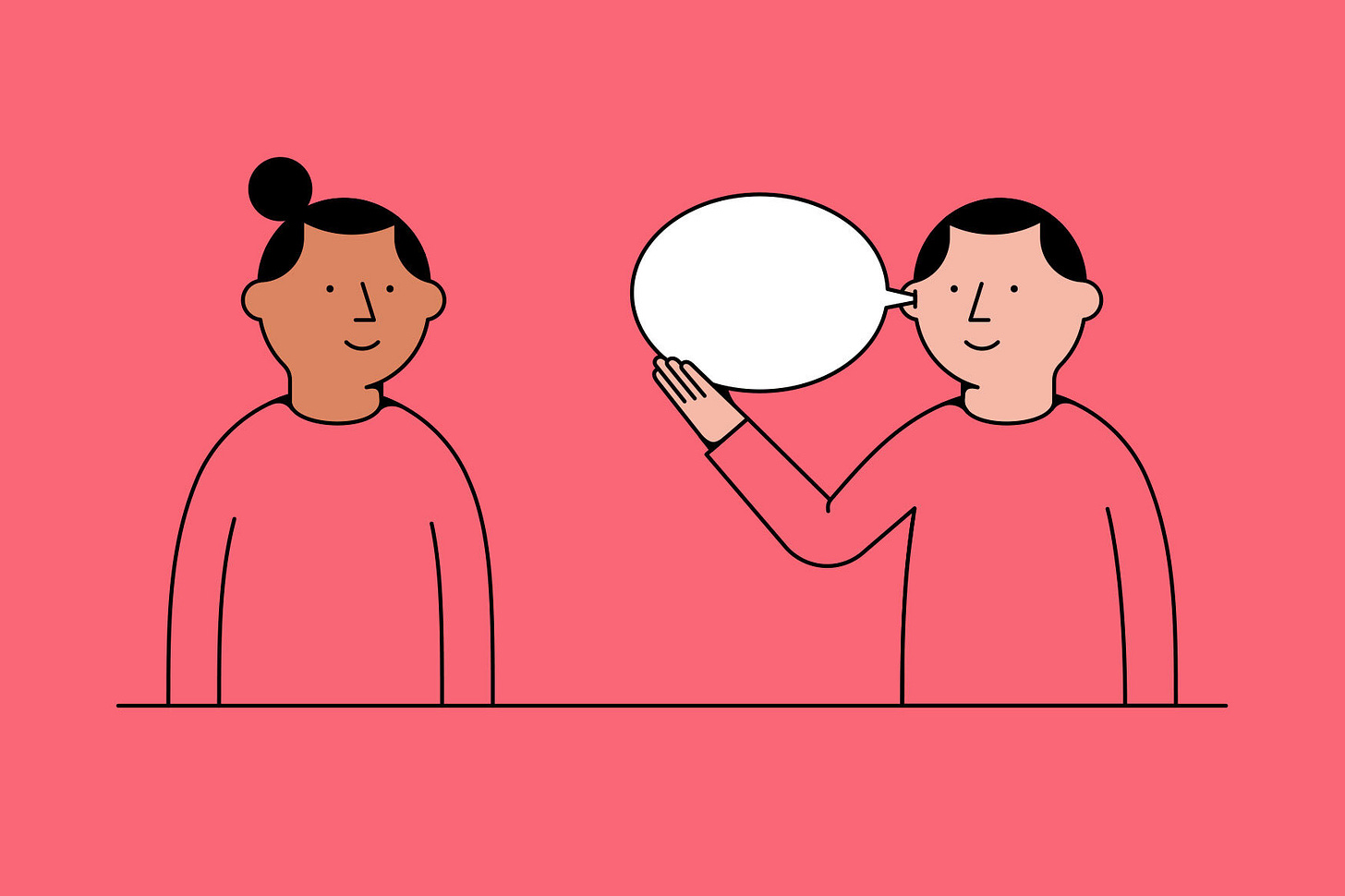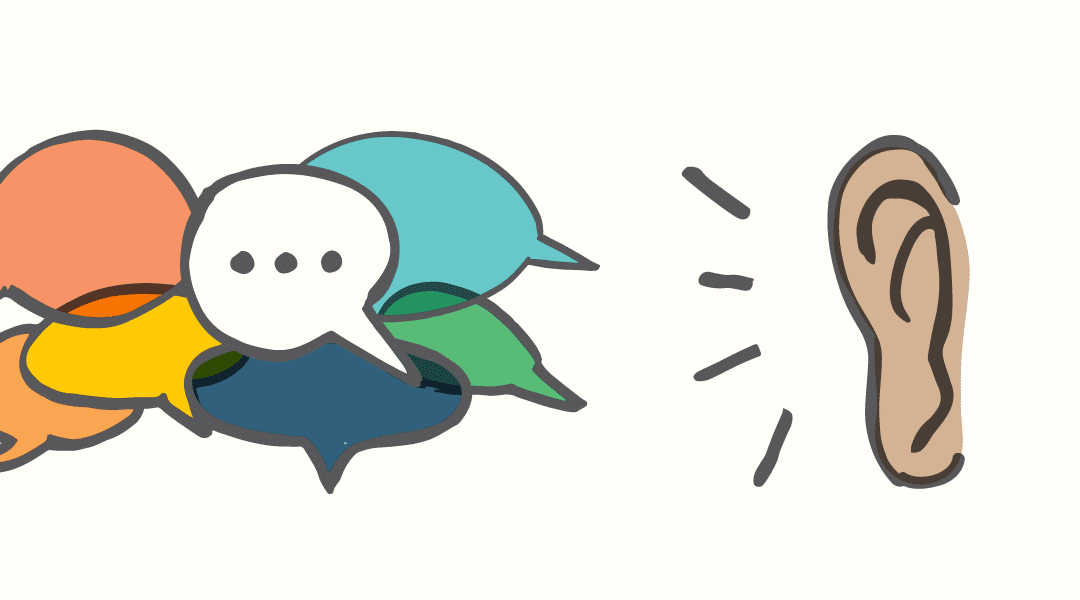Seek First to UNDERSTAND, then to be Understood
How to become a EMPATHETIC LISTENER and a better communicator
The title intrigued you? I’m glad, I hope you are also trying to be a better listener. Here’s a fun dialogue.
As you read the dialogue below between a teenage son and his dad, think about the dad’s responses. Is that how you respond to your friends, siblings? Do your friends, or parents respond to you that way? Also, Ignore the words inside the parenthesis for now. They will be explained later.
“Boy, Dad, I’ve had it! School is for the birds!”
“What’s the matter, Son?” (probing).
“It’s totally impractical. I don’t get a thing out of it.”
“Well, you just can’t see the benefits yet, Son. I felt the same way when I was your age. I remember thinking what a waste some of the classes were. But those classes turned out to be the most helpful to me later on. Just hang in there. Give it some time” (advising). “I’ve given it ten years of my life! Can you tell me what good ‘x plus y’ is going to be to me as an auto mechanic?”
“An auto mechanic? You’ve got to be kidding” (evaluating).
“No, I’m not. Look at Joe. He’s quit school. He’s working on cars. And he’s making lots of money. Now that’s practical.”
“It may look that way now. But several years down the road, Joe’s going to wish he’d stayed in school. You don’t want to be an auto mechanic. You need an education to prepare you for something better than that” (advising).
“I don’t know. Joe’s got a pretty good set up.”
“Look, Son, have you really tried?” (probing, evaluating).
“I’ve been in high school for two years now. Sure I’ve tried. It’s just a waste.”
“That’s a highly respected school, Son. Give them a little credit” (advising, evaluating). “Well, the other guys feel the same way I do.”
“Do you realize how many sacrifices your mother and I have made to get you where you are? You can’t quit when you’ve come this far” (evaluating).
“I know you’ve sacrificed, Dad. But it’s just not worth it.”
“Look, maybe if you spent more time doing your homework and less time in front of TV…” (advising, evaluating).
“Look, Dad. It’s just no good. Oh… never mind! I don’t want to talk about this anyway.”
Well, what did you think? Does it sound like a typical conversation teens have with their parents?
The father was well-intended in this case. But, let me bring the truth to you. This is an example of ineffective communication, the dad’s lack of understanding of the son. Sure, he wanted to help, but he didn't even try to understand his son, leading him to be frustrated with the conversation and not open up.
Welcome
Hi friends, welcome back to my newsletter. In this post, we will continue with the 7 Habits series. I will be discussing my insights from the 5th habit: seek first to understand, then to be understood. I believe this is a really important and practical habit that we all can benefit from. Everyone can improve at being a better empathetic listener. Being an empathetic listener and good communicator is the key to “Win/Win” interactions and to finding success in public victory habits. This is the tide that lifts it all.
I will discuss the four steps to empathic listening. Before I do, let me explain step by step why the earlier dialogue was a poor example of empathetic listening.
We listen to respond, not understand
First, I want to share an eye-opening realization from the book. Generally, we tend to seek first to be understood, rather than to understand. We listen with the intent to respond, not with the intent to understand. I have realized this is true in my life. Even though I felt like I tried to understand my friends, I’ve always listened with the intent to reply. We are typically “filtering everything through our paradigms, reading our autobiography into other people’s lives.” This is again so true. I often advise my friends based on my past experiences. Even though it is with the intent to help them, I am not really seeking to understand their frame of reference. I am not putting their shoes on. When we truly don't understand others, it is hard for them to open up and have a deeper connection with us.
The 4 ways we respond (but, do not understand)
Let me briefly explain what went wrong with the dialogue at the beginning of this post. This is important to understand first before we can listen empathetically. We need to identify what we’re doing wrong before we can fix it.
When we listen, autobiographically, we tend to respond in four ways. All of these are highlighted in the dialogue earlier, in the parenthesis ( ).
Evaluate - we either agree or disagree
Probe - we ask questions from our frame of reference
Advise - we give advice based on our experience
Interpret - we try to figure people out, to explain their motives and behavior based on ours.
I highly recommend going back to the dialogue at the beginning to see all of these in action. I also suggest thinking about some of your past interactions with someone where they shared something vulnerable and whether your responses followed any of these steps.
Diagnose before Prescribe
Don’t worry; however, these responses are deeply scripted in all of us. The reason they are ineffective is because they don’t allow someone to open up. They give the person “psychological air” - which means the room to breathe, to feel comfortable, understood, affirmed, validated, and appreciated in a conversation. When the dad is evaluating the son before he can explain himself, he’s not allowing him to open up. Probing is constantly asking questions to the person, it’s logical, which is different from sentiment and emotion. These steps also violate the fundamental law of “diagnose before prescribe”, which means to understand before advice. You wouldn’t want your doctor to prescribe you medicine for diarrhea when your problem is constipation. He needs to understand your problems thoroughly rather than just hearing “bathroom problems” before he can prescribe you the best medicine.
What to do when there’s disagreement?
When compromise seems to be difficult and differences overtake, genuinely trying to understand the other side can be so powerful and effective in finding a Win/Win solution.
When it seems like you are correct and the other person/side is wrong, just the attempt to “understand” them can be eye-opening. Pragmatically, in those situations, you can ask them “‘Let me see if I really understand what your position is and what your concerns about my recommendations (my stance/thoughts) really are. When you feel I understand them, then we’ll see whether my proposal (my point of view/thoughts) has any relevance (makes sense) or not” This is an example in a professional business setting; however it gives you a pragmatic idea of how you approach to understand someone when it’s difficult to compromise. This is different from understanding someone when they are simply communicating with you.
HOW TO LISTEN TO UNDERSTAND
Enough blurb, let’s get to the skills of empathetic listening. However, for the skills to be effective, you need to have a genuine desire to understand. People dislike any attempts at manipulation. There are four developmental stages of empathetic listening. We can start with the first stage, and ideally improve to stage 4.
Mimicking - you listen to the words that someone says and you repeat them. This is the least effective; however, it does encourage you to “actively” listen to what’s being said.
“Boy, Dad, I’ve had it! School is for the birds!”
“You’ve had it. You think school is for the birds.” [ Mimicking - by doing this, you show that you’re paying attention ]
Rephrasing (the content) - you put the meaning (of what they said), in your own words
Boy, Dad, I’ve had it! School is for the birds!”
“You don’t want to go to school anymore.” [ You’re using your left brain to think about what's being said ]
Reflect feelings - now you’re paying attention to the way they feel about what they're saying rather than paying attention to what’s being said.
“Boy, Dad, I’ve had it! School is for the birds!”
“You’re feeling really frustrated. [ now, you start operating with your right brain ]
Rephrase (the content) + reflect (the feeling)
“Boy, Dad, I’ve had it! School is for the birds!”
“You’re really frustrated about school.” [ “Frustration is the feeling; school is the content. You’re using both sides of your brain to understand both sides of his communication.”]
In the example, the dad now gives the son psychological air. He allows him to open up and communicate what he's feeling and thinking, not one or the other. He’s not shut down by quick evaluation or judgment.
Here is the full-length conversation between the dad and his son using fourth stage empathetic listening. I’ve copied it into a Google doc, so you can choose to read it only if you are genuinely interested. If not, I hope my explanations and breakdown were sufficient.
Then to be understood
This section in the book is quite vague. Generally, to have your point understood, you need to focus on the first part; seek to understand. More pragmatically, when there’s a lack of agreement, you should first explain to them their point of view, appeal to their emotions, then explain your point of view through their lens using logic. It is important to use “ethos, pathos and logos”, in the respective order. For example, if I am debating with a friend on whether we should see a movie or go play pool and I want to play pool, I can first try to tell them what I understand about their point of view.
“Lemme see if I understand what your saying. You want to see the movies because you feel it’s more relaxing and also convenient because it’s cheaper?”
“I think that’s a really good idea. I was thinking that when we play pool, we can have music on and talk about work and have some drinks. Also, the tickets for the pool are really low currently. I think we can save the movie idea for next Friday when Oppenheimer comes out.”
This habit is something I have a big room for improvement for. I am glad to have noticed that I have been listening autobiographically, without really trying to understand others. If that’s the case for you, I hope we can both start here, today and improve our listening and communication skills.
If you are still reading, remember that learning means changing behavior, and how you act. So, if you learned something from reading this post, I encourage you to apply it. This one, in particular, is highly applicable. Try it the next time you have a conversation.
Thank you so much for reading! I hope this post brings value to you. I hope everyone is getting ready to go back to school (or college, like I am) soon. Have a beautiful week!





